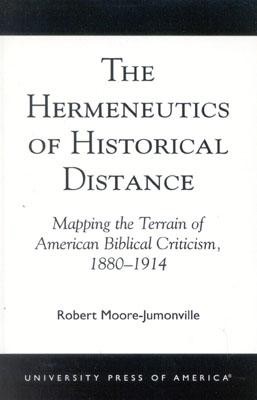
- We will send in 10–14 business days.
- Author: Robert Moore-Jumonville
- Publisher: University Press of America
- ISBN-10: 0761824626
- ISBN-13: 9780761824626
- Format: 14 x 21.6 x 1.6 cm, minkšti viršeliai
- Language: English
- SAVE -10% with code: EXTRA
Reviews
Description
Historians have tended to create a dualistic paradigm, which excludes a mediating biblical criticism in America. For polemical reasons, it has been easier for both conservatives and liberals to polarize moderates as the opposition or to ignore them altogether. Rather than the common modernist/fundamentalist paradigm, which is dualistic, a more accurate way to interpret the biblical criticism of late nineteenth century America is to construe a theological spectrum extending from right to left. The Hermeneutics of Historical Distance tells the story of late nineteenth century moderate American biblical criticism. Robert Moore-Jumonville's study serves as a lens for examining the broader context and complexities of American biblical studies during the period and the result is a more subtly nuanced view of American biblical criticism.
EXTRA 10 % discount with code: EXTRA
The promotion ends in 21d.23:48:59
The discount code is valid when purchasing from 10 €. Discounts do not stack.
- Author: Robert Moore-Jumonville
- Publisher: University Press of America
- ISBN-10: 0761824626
- ISBN-13: 9780761824626
- Format: 14 x 21.6 x 1.6 cm, minkšti viršeliai
- Language: English English
Historians have tended to create a dualistic paradigm, which excludes a mediating biblical criticism in America. For polemical reasons, it has been easier for both conservatives and liberals to polarize moderates as the opposition or to ignore them altogether. Rather than the common modernist/fundamentalist paradigm, which is dualistic, a more accurate way to interpret the biblical criticism of late nineteenth century America is to construe a theological spectrum extending from right to left. The Hermeneutics of Historical Distance tells the story of late nineteenth century moderate American biblical criticism. Robert Moore-Jumonville's study serves as a lens for examining the broader context and complexities of American biblical studies during the period and the result is a more subtly nuanced view of American biblical criticism.


Reviews